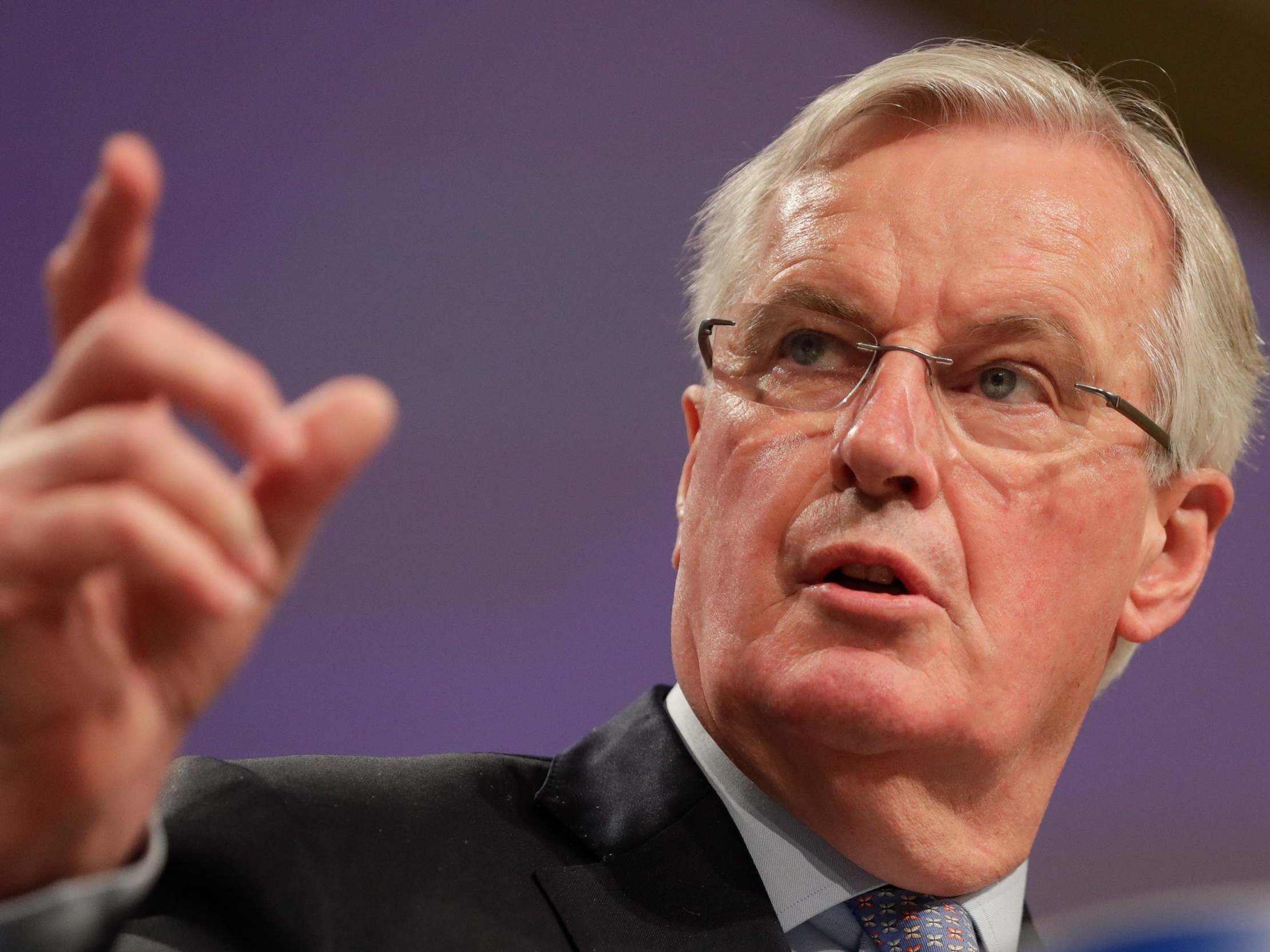EU trade deal plan would stop UK governments repealing future workers’ rights
Leaked draft of EU plan for agreement would make some actions of future British governments irreversible

Future British governments could be unable to repeal new laws on workers’ rights, the environment, and health and safety, under the terms of the EU’s proposed Brexit trade deal.
A leaked draft of the agreement drawn up by the European Commission and seen by The Independent insists that “future levels of protection” brought in by both sides must be maintained as a condition of UK access to European markets.
The plan goes further than a simple “non-regression” pledge to maintain existing rules at the point of Brexit, and means any future UK government that brings in new social rights could see its changes become untouchable, as long as they are endorsed and matched by Brussels.
The rule is the latest bid by the EU to ensure Britain does not unfairly deregulate itself into “Singapore-on-Thames” after Brexit, to unfairly undercut European businesses with lower standards.
The draft document also includes a demand that the UK notify Brussels in advance of any plans for “major” new regulations, before they are proposed to the UK parliament.
And it also shows that the bloc is standing by a requirement that the UK commit in writing to staying the jurisdiction of the European Court of Human Rights – which Boris Johnson has so far refused to sign. The document says both parties must have a “continued commitment to respect the European Convention on Human Rights”.
The stipulations are likely to be resisted by UK negotiators, who have accused Brussels of trying to hold Britain to conditions that it is not holding other countries with free trade agreements. But EU officials are adamant that the UK’s proximity to and links with Europe require a strong “level playing field” of regulations.
Article LPFS.2.28 of the draft agreement, headlined “Future levels of protection” states that “where both parties have increased ... the level of labour and social protection above the level referred to in Article LPFS.2.27 [Non-regression of the level of protection], neither party shall weaken or reduce its level of labour or social protection below a level of protection which is at least equivalent to that of the other party’s increased level of labour and social protection”.
The commitment would mean that if a future UK government brought in new rights and those rights were matched by the EU, they could not be repealed by a later UK government – without ripping up Britain’s trade deal with the EU.
Another section, titled “Early information on planned regulatory measures”, states that “Each party shall make publicly available ... at least on an annual basis a list of planned major regulatory measures that its regulatory authority reasonably expects to propose or adopt within a year”.
The rule, which also requires the two sides to provide “a brief description” of the regulations’ scope and their estimated time for adoption, appears to require the UK to notify Brussels of new regulations before they are proposed to the British parliament.
Brexit celebrations in Parliament Square
Show all 37Nathalie Loiseau MEP, former French minister of European affairs and member of the European Parliament’s UK Coordination Group told The Independent: “No one can ignore now that the times ahead of us are challenging and that they require more cooperation, not less, more solidarity, not less, more coordination, not less.
“The way we envisage the future EU-UK relationship is based on our understanding that being independent doesn’t prevent us from deciding freely to be stronger together. This is why common high standards are so important, for the safety and security of consumers, in order to preserve jobs, to protect businesses which are about to be severely challenged.
“My message to the British authorities: ideology doesn’t save jobs and it doesn’t save lives. The time is right for good old British pragmatism and to join forces.”
The UK plans to publish its own draft for the proposed agreement “shortly”, with chief negotiator David Frost having said he will make the text available “before round two next week”. The next round of talks, which was due to be held in London, has, however, been postponed in its originally intended form because of the coronavirus outbreak. Alternative measures are expected to be taken, possibly involving videoconferencing.
Subscribe to Independent Premium to bookmark this article
Want to bookmark your favourite articles and stories to read or reference later? Start your Independent Premium subscription today.

Join our commenting forum
Join thought-provoking conversations, follow other Independent readers and see their replies